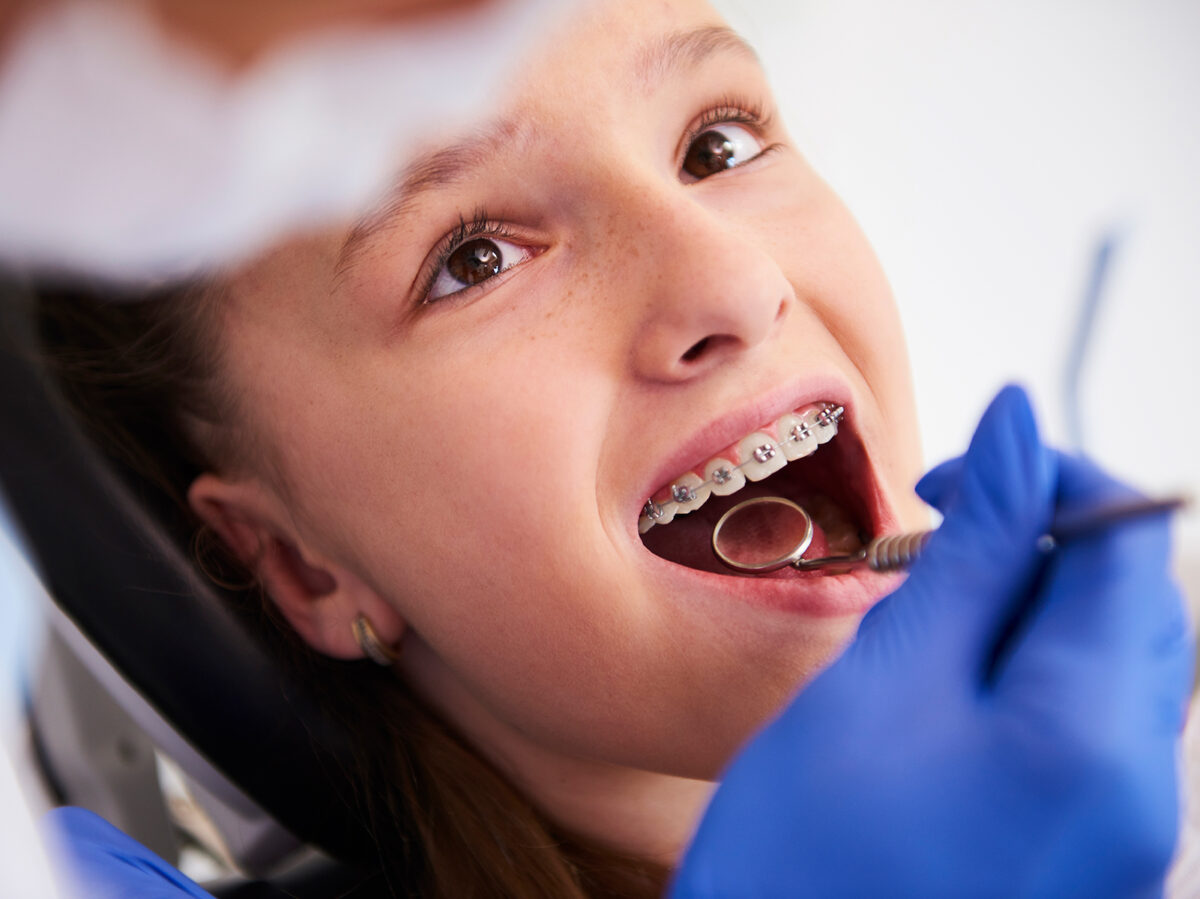Blog
Dental hygiene tips for healthy teeth & gums

Can A Child Get Braces With Baby Teeth?
When it comes to children and orthodontic care, many parents wonder whether dental braces are an option when their child still has baby teeth. After all, those adorable little teeth will eventually fall out, so is it worth investing in braces at this stage? In this article, we’ll dive into this common concern and provide insights into whether a child can get braces with baby teeth.
Understanding the Basics of Dental Braces
Baby teeth, also known as primary or deciduous teeth, serve as placeholders for permanent teeth. They start erupting at around six months of age and continue until a child is about two to three years old, eventually giving way to adult teeth. When a child reaches their early teenage years, most baby teeth have naturally fallen out and been replaced by permanent ones.
The Right Age for Orthodontic Treatment
Orthodontic treatment, including dental braces, is typically recommended when a child has a combination of baby and permanent teeth. It usually occurs around the age of 7 to 8 when the first permanent molars appear, providing orthodontists with a better understanding of the child’s jaw and bite development. However, it’s important to remember that each child is unique, and the timing of orthodontic treatment can vary.
Early Orthodontic Treatment
In some cases, orthodontic treatment may be required before all permanent teeth have erupted. Orthodontists may recommend early intervention if a child exhibits specific issues that can be corrected more effectively at a younger age. These issues may include severe crowding, crossbites, overbites, underbites, or issues with jaw development.
Early orthodontic intervention typically involves treatments like expanders or partial dental braces. These treatments help create space for permanent teeth to come in properly or correct bite problems before they become more challenging to address.
Benefits of Early Orthodontic Intervention
Opting for early orthodontic intervention with baby teeth in some cases can offer several benefits:
- Reduced Treatment Time: Correcting issues early can shorten the overall duration of orthodontic treatment when the child is older.
- Improved Oral Health: Early intervention can prevent dental problems associated with misaligned teeth and improper bites, such as tooth decay and gum disease.
- Enhanced Self-Esteem: Addressing orthodontic issues early can boost a child’s self-confidence by improving their smile.
Consulting an Orthodontist
The best way to determine if your child needs dental braces or any orthodontic treatment with baby teeth is to consult a qualified orthodontist. They will conduct a thorough examination, which may include X-rays, to assess your child’s dental development.
The orthodontist will consider various factors, including the child’s age, the severity of the dental issue, and the potential benefits of early intervention. Based on their evaluation, they will recommend the most suitable course of action, including waiting until more permanent teeth have come in or beginning treatment with baby teeth.
What to Expect During Treatment
If your child’s orthodontist recommends treatment with baby teeth, it’s essential to understand what to expect. Treatment options may include partial braces, space maintainers, or other devices designed to guide the growth and development of the jaw and teeth.
The orthodontist will provide detailed instructions on caring for your child’s braces or appliances. Proper oral hygiene is crucial during treatment to ensure both baby’s and permanent teeth’ health.
Conclusion
In summary, while it may seem unusual to consider dental braces for a child with baby teeth, it’s entirely possible and, in some cases, recommended by orthodontists. Early orthodontic intervention with baby teeth can address issues that might become more challenging to correct as the child grows older. It can also improve oral health and boost a child’s self-confidence by enhancing their smile.


